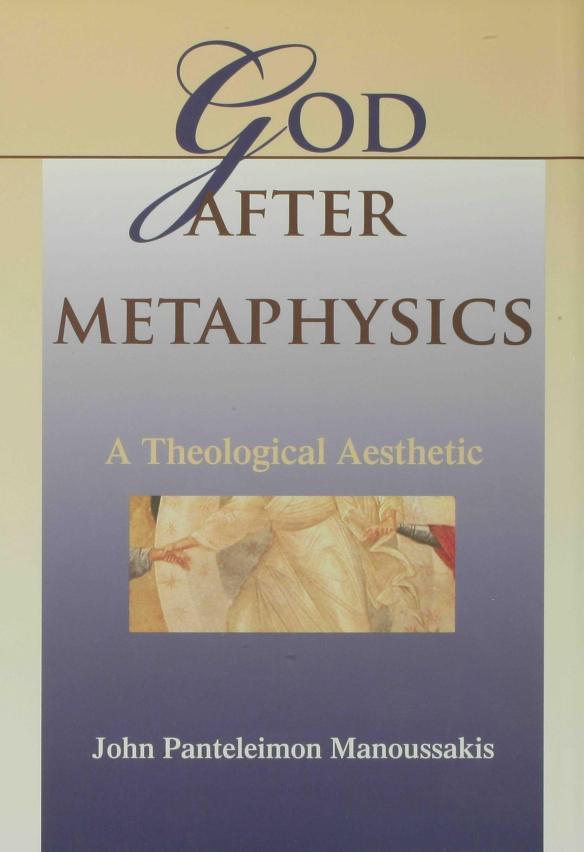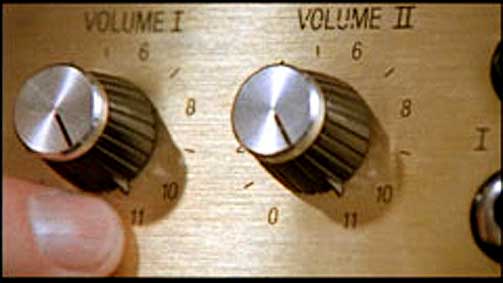I knew there was a reason why I took my “Top 10 Theology Books of the Last 10 Years (That I’ve Read)” up to 11. Somehow I just knew that I had to read the extra book I added.
Well, actually, Fr. Peter Nguyen, SJ (one of the good ones) read the book on my semi-blind recommendation about a year ago. He came away with a glowing face full of new insights. Now that I’ve started reading God After Metaphysics: A Theological Aesthetic, I know why it’s been haunting me.

“I have not seen anything in breadth, importance, and intensity!,” says Jean-Luc Marion about God After Metaphysics. That’s praise which is beyond good.
John Panteleimon Manoussakis, a Greek Orthodox theologian, begins with a quote from Chesterton (who was the subject of yesterday’s post). God After Metaphysics is ecumenical in its engagement with all the best in the Orthodox, Catholic, and Protestant traditions. The following epigraph from The Everlasting Man is just one example of the intellectual hospitality of God After Metaphysics and its author:
“It is nothing less than the loud assertion that this mysterious maker of the world has visited his world in person. It declares that really and even recently, or right in the middle of historic times, there did walk into the world this original invisible being; about whom the thinkers make theories and the mythologists hand down myths; the Man Who Made the World. That such a higher personality exists behind all things had indeed always been implied by all the best thinkers, as well as by all the most beautiful legends. But nothing of this sort had ever been implied in any of them. It is simply false to say that the other sages and heroes had claimed to be that mysterious master and maker, of whom the world had dreamed and disputed. Not one of them had ever claimed to be anything of the sort. Not one of their sects or schools had even claimed that they had claimed to be anything of the sort. The most that any religious prophet had said was that he was the true servant of such a being. The most that any visionary had ever said was that men might catch glimpses of the glory of that spiritual being; or much more often of lesser spiritual beings. The most that any primitive myth had even suggested was that the Creator was present at the Creation. But that the Creator was present at scenes a little subsequent to the supper-parties of Horace, and talked with tax-collectors and government officials in the detailed daily life of the Roman Empire, and that this fact continued to be firmly asserted by the whole of that great civilisation for more than a thousand years– that is something utterly unlike anything else in nature. It is the one great startling statement that man has made since he spoke his first articulate word… it makes nothing but dust and nonsense of comparative religion.”
Manoussakis finds and deftly comments upon such gems throughout his book. It’s as if he wants you to go broke collecting a library as you read.
Now, the importance of the Greek intellectual heritage for understanding the uniqueness of Christianity is something we’ve previously addressed in a post related to the work of Jaroslav Pelikan here. Manoussakis points out how the notion of a human person as a relational reality is something that developed within the Greek literary and philosophical traditions. In fact, relation (between persons) was so crucial to the notion of a person that early Greek literary texts used the plural (prosopa) almost exclusively even when referring to individuals. What’s more, the antonym of person (prosopon) is atomon. A-tomon can be etymologically parsed as that which cannot be cut any further. The same implication is embedded within the English word individual (that which cannot be divided anymore, an atom).

The flip side of Manoussakis: “If life is an illusion it’s a pretty painful one,” says the nihilistic but compassionate author of The Elementary Particles.
All of this reminds me of Michel Houellebecq’s contemporary classic novel of social fragmentation The Elementary Particles. Even though the novel charts the free-fall of the two main characters, who are half-brothers, into different forms of deadly isolation Houllebecq leaves threads like these for his readers to hang onto, “Love binds, and it binds forever. Good binds while evil unravels. Separation is another word for evil; it is also another word for deceit.” Hell as I’ve suggested elsewhere is the life of elementary particles. This insight seems to be true for Houllebecq the author, even though his characters never achieve it.
The novelistic dictum is at bottom in concert with the implications of the Incarnation, our fundamental relation to God, as explained by Manoussakis:
“The urgency for particularity, however, was forced upon philosophy by an event that lay entirely outside its proper scope. As a number of studies, both old and new, have shown, the thought of the classical World lacked the the notion of the uniqueness of the human person. The cruel Spartan law which demanded that every baby born with some physical or or mental defect be discarded at the outskirts of the city was consistent with the classical mentality. The classical worldview was turned upside down in the wake of the Incarnation. The Christian dogma of the ‘Word made flesh’ bestowed upon any person an infinite value–or rather, the value of the infinite.”
It is as if the relationality built into the Greek language needed the Gospel to bring out its most radical implications. And the practical implications of this passage continue to be fundamental for the most controversial contemporary debates such as abortion or euthanasia. Ultimately, the task comes down to facilitating a parallax shift from talk about individuals to talk about persons.
Theology is not a spectator sport. You might just have to change your life.
The classic film Seconds poignantly highlights this need for personal engagement in a final tragic monologue before the protagonist’s death:
“I couldn’t help it, Charlie. I had to find out where I went wrong. The years I’ve spent trying to get all the things I was told were important – that I was supposed to want! Things! Not people… or meaning. Just things. And California was the same. They made the decisions for me all over again and they were the same things, really. It’s going to be different from now on. A new face and a name. I’ll do the rest. I know it’s going to be different. I suppose you do too.”
[Its opening sequence is filled with some of the most hellish images of fragmentation caught on film.]


Thanks Artur. Elizabeth ewnimages@gmail.com
Definitely on my list. Given the composition of my family and personal religious and spiritual history I am constantly in search of a theology that expands my understanding and experience of Christianity. Thank you.
EWN
Pingback: The Glimmer of the Eschaton in Van Gogh | Cosmos the in Lost